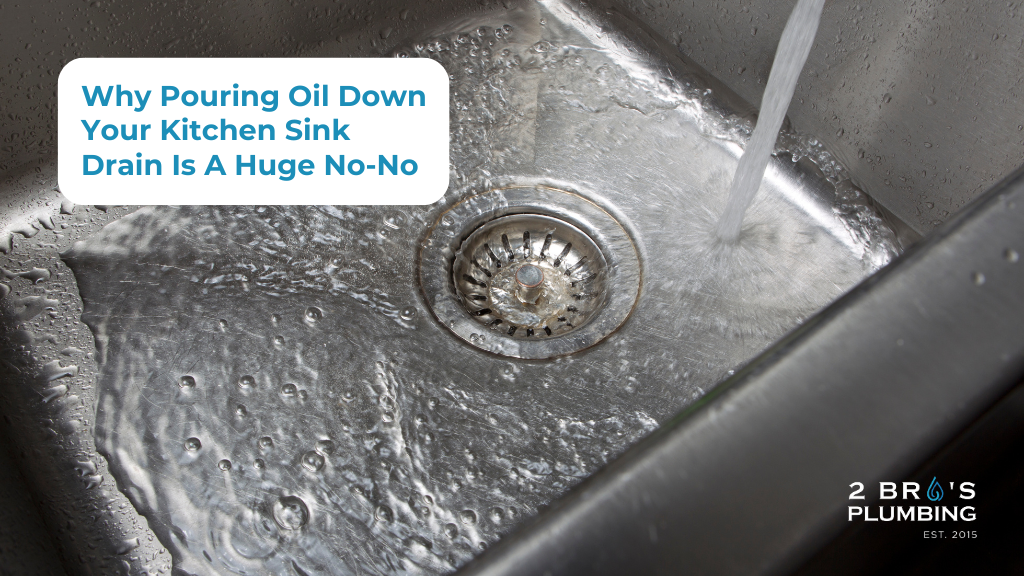If we’re being honest, most of us take our kitchen sinks for granted. We assume that simply because the liquids we pour down our drains disappear from our sight, we’ve rid ourselves of them forever. This is not so. While the inner workings of our pipes aren’t visible to us, they shouldn’t be ignored. Oil, it should come as no surprise to you, doesn’t mix with water. What that means is you’re contributing to clogs every time you pour it down the drain.
Oil solidifies and creates clogs.
Allow us to reiterate that oil and water aren’t one and the same. At room temperature, vegetable oil, olive oil and (probably the worst) bacon grease solidifies. This means that, when poured down the drain, these substances create thick and congealed chunks. They stick to the inner walls of your pipes and end up catching other debris like food crumbs and soap scum that may escape through the drain.
It’s important to remember that there are numerous ways for oil to end up in your pipes. Do you wash your dishes before wiping them clean of oils? Be sure to do so when you’re cleaning kitchenware that has food scraps, sauces, salad dressings, gravy, soups, sandwich spreads, meats, butter, margarine, milk and cream.
It causes environmental harm.
The combination of all of the above contributes to the creation of FOG (fats, oils and grease) buildup. When finding its way to your local sewer system, FOG mixes with other substances to become large blockages known as “fatbergs”. These can become huge problems for your community. Believe it or hot, cities spend a lot of money removing fatbergs from sewers as they can cause a lot of damage.
Among the problems is the pollution of natural water sources. FOG and its ensuing fatbergs can form barriers on water sources that prevent oxygen from entering it. As a result, surrounding soil can become contaminated. This also leads to contaminated groundwater which can create long-term environmental damage. Not to mention, this pollution leads to the death of aquatic life.
You will endure costly repairs.
As we pointed out in a recent blog, many people underestimate the difficulty of unclogging a drain. We noted that Drano and other chemical cleaners can often cause more harm than good. In many cases, pipes with significant clogs require professional repairs and replacements. Remember that your pipes aren’t the only things you can damage. If your drainage system is compromised, you will be looking at even heftier repair bills.
As well, if the oil you’ve been pouring down your drain contributes to blockages in your local sewer system, the costs of repair will likely be passed on to you and other homeowners in your area. Durham Region encourages its residents to drop off used cooking oil to any Waste Management Facility for free. “If you can’t dispose of your used cooking oil at a Waste Management Facility, let it cool and harden, and scrape the frozen or hardened oil into your green bin,” informs the site.
Do you have clogged drains?
For help with drain cleaning or any other plumbing requirements, please don’t hesitate to give your friends at 2 Bro’s Plumbing a call at 905-556-0790. You may also email us at admin@2brosplumbing.ca.



